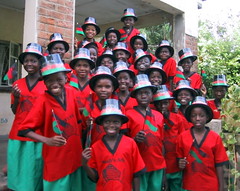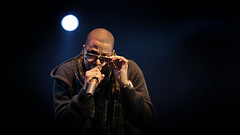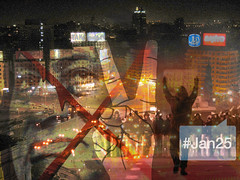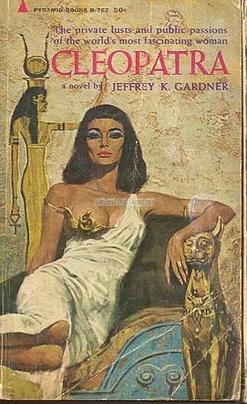|
|
| African students play an important role in institutions of higher learning and later in contribution to R&D in the workforce. Together with Caribbean immigrants, they make up the majority of the 'black' minorities at Ivy League schools. Image via Wikipedia |
Africans immigrants to North
America are always presented as hard
working, friendly, education-focused minorities that adapt well to their
new host countries. This image of the hard-working African immigrant is
often presented as a stereotype that is in contrast to the stereotype of U.S. born
African (Black) Americans (See:
The Myth of the Black Immigrant Privilege). In fact, the majority of Africans come to North America do come for the purposes of education more than any other
reason. This has led to a situation where more than one-third (36.6%) of
African immigrants to the U.S. have a bachelor’s or higher degree.
When it comes to education, African immigrants as a group have a
higher
education rate than immigrants from the West Indies, Asia, and Europe.
When compared to
U.S. citizens more Africans in the U.S report having a
college degree than U.S. born minorities (Asian,
Latino, and
Black
Americans). (See: studies:
World Bank,
Economic Policy Institute,
JBHE) In fact, the stereotype in America popular culture of the genius Asian model minority student, is statistically more likely to be an African student from the continent (See:
Direct comparison in Asian-Nation). In fact, in Ivy League colleges in the U.S., recruitment of 'Black' students is made up largely of Black students of African and Caribbean heritage (See: articles in
Huffington Post,
The Grio) . Africans in the U.S. are doing significantly better in
educational attainment rates where 36.6% have a bachelors degree
compared to 29.5% White Americans who are also the privileged majority
and have the most access to the power institutions in the U.S.
Marriage
rates for Africans were also similar to White Americans too (marriage
typically indicate higher income). According to a World Bank study on the African Diaspora in North America,
Mobilizing the African Diaspora, similar trends can be seen in Canada. Many Africans use education as a means to finding work and
‘improving their lives’. One would assume that having high educational
achievement levels would mean an increase in economic factors for
African immigrants to the U.S. However, recent studies show the
opposite.
Contrary to popular belief about affluence levels for African
immigrants in the U.S., recent study has concluded that Africans in
the U.S. are currently not doing significantly better than other
immigrants overall, Black immigrants or U.S. born citizens (Black, Asian
or White). In the Mason and Austin (2011) study,
“The Low Wages of Black Immigrants: Wage penalties for U.S.-born and foreign-born black workers”,
the study concludes that Africans in the U.S are not fundamentally
better off than all other groups including African-Americans. African Americans currently thought of as having the highest rate of unemployment and poverty rates. It also
concludes that Africans are economically more similar to African
Americans. The rate of Africans falling into
poverty in the U.S. is more
similar to that of African-Americans. Lastly, it concludes that
unemployment rates for this demographic are similar to that of African
Americans. Africans in the U.S. are also currently earning lower wages
then African Americans. Whilst Africans are doing better than African
Americans in terms of poverty, unemployment, and marriage rates, it is
not significantly better in spite of higher education rates. It is interesting to note that in the study conducted by the World Bank,
Mobilizing the African Diaspora, for African immigrants that migrated to Canada, the high education levels of African immigrants are reflected in the level of pay or opportunities. For the African diaspora in the U.S though, despite high education rates for Africans,
economic factors aren’t tallying up when it comes to getting the corner office. This even though in both countries, Africans were more likely to report having the highest rates of education and higher rates of working as professionals then other immigrant populations.
|
|
| African students receive the early years of their education from home institutions and are recruited overseas for work and further education. Image via Wikipedia |
One explanation for this is that Africans still continue to face
discrimination in the U.S. because of color (‘race’),
nationality, and legal requirements. Stringent immigration laws barring opportunities for legal employment for many students may factor in for U.S. that want to transition to the workforce. The recession has also influences this recent phenomenon. In an article that
appeared in the Huffington Post,
“Foreign-Born Blacks Hit Hardest Of All Immigrant Groups By Jobs Crisis”
it was reported that the U.S. recession that began in 2007, affected
all
Black people in the U.S because they faced similar discrimination
in the job hiring process. For Africans, discrimination in terms of
wage/salary and job hiring was worse than that of African Americans.
There has been increasing unemployment for Africans too. By 2009,
greater numbers of African immigrants than any other group lived in a
household with an annual income below the federal poverty line. The
Migration Information Source
reports that based on the U.S. census, the majority of Africans in the
U.S work in service occupations like construction, extraction and
transportation (30%), compared to 12.5% that work in management,
business, and finance professions that pay more. Africans here were more likely then any other immigrant group however to report working in professional jobs. This suggests that
despite high education rates, Africans are getting jobs that are not
reflecting their qualifications and/or that they are overqualified for.
The difficulties faced in legal immigration and/or obtaining work
permits may help explain these patterns as well since we don't see the same phenomena in Canada, where immigration laws allow for smoother and more transparent legal work authorization process. It would also be
beneficial to access other obligations that may contribute towards
Africans living below the poverty line like obligations in their home
country. This may include contributions towards buying assets, homes,
businesses, or other investments and funding education for relatives.
Although the Mason and Austin (2011), suggests that the prominence of
the African degree may be one reason as to why Africans are not getting
higher jobs, it is important to note that many Africans do get in to
Masters/Phd degrees in African institutions and are recruited to higher education or work. In a small poor country like
Malawi as an example, many
Malawian
doctors and nurses are recruited overseas with their Malawian degrees.
As an example, there are more Malawian trained doctors in Manchester,
U.K than in Malawi itself.
Education has always been important to
Africans, and it is seen as a ways to upward mobility. But as we can see, there are limits to how far it can take African immigrants. For many this has
been the case, but as immigrants to new countries, Africans will still
always face the same levels of economic discrimination that the native
born minorities face. Over time, we will need to continue to monitor
data to see if factors for second and third generation Africans will
converge with those of native born Black minorities. As Fanon notes:
"When a bachelor of philosophy from the Antilles
refuses to apply for certification as a teacher on the grounds of his
color I say that philosophy has never saved anyone. When someone else
strives and strains to prove to me that black men are as intelligent as
white men I say that intelligence has never saved anyone: and that is
true, for, if philosophy and intelligence are invoked to proclaim the
equality of men, they have also been employed to justify the
extermination of men.” - Frantz Fanon
-- A version of this article,
"Africans Immigrants In The US: Making The Grade, But Not The Jobs" was posted on Group blog,
Africa on the Blog on Nov 28, 2011.












